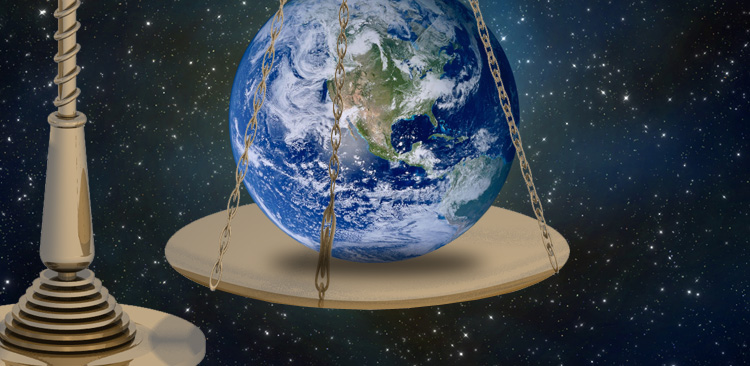
The earth could have weight only if removed to other pressures farther extended from the plane of the lens-like wheel of which our sun is the hub. If it could be pushed toward the sun by some giant hand, it would seek balance in its own orbit when released, exactly as a man would rise when plunged beneath his own balance level in water. Every freely moving mass in the universe floats in its own equally divided wave field exactly as a man would rise when plunged beneath his own balance level in water.
The moon is not falling upon the earth, as generally supposed, for it is in balance with its environment and cannot fall. Its contracted mass is equal to the expanded mass it displaces in its wave field.
For the same reason a cloud floats in the sky. If one could put scales under it, one would find it had no weight unless lifted above or thrust below its equipotential level. If it condensed into heavier vapor, it would fall to seek a new static equator where it would again float. If it condensed to rain, it would fall into the sea to find balance in a like condition.
Weight is not a fixed property of matter. It is as variable as matter is variable.
A man weighs less as he climbs a mountain, weighs more as he descends into a mine, and weighs nothing when he floats in water.
Unless, and until, matter is extended from a plane of equal pressure, there can be no weight, nor can there be electric potential. [Walter Russell, The Secret of Light, pages 183-184]
